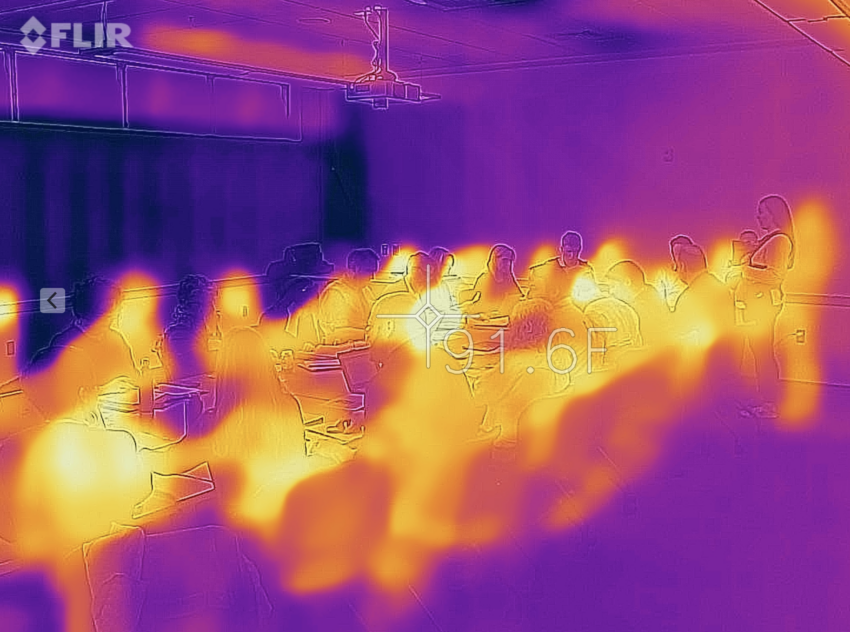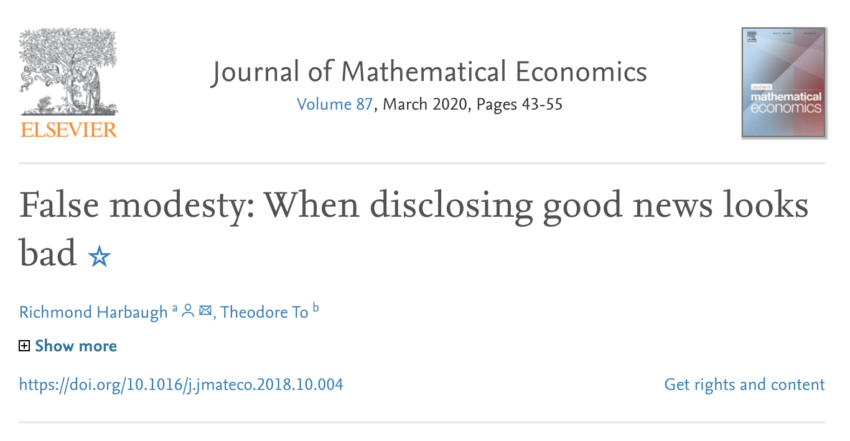Synopsis: Coming later.
MMXX-IX live-blog. Bargaining teams seem corona free, operating at a cool 91.6 degrees so far:
125 Chiles 12-3PM 3/5/2020: My continuing series on Budget Buckets is here. If you don’t like my blog read the official Union tweets or Facebook page. Usual disclaimer: This is my opinion and interpretation of what the bargainers are saying, thinking, or should be saying or thinking. Nothing is a quote unless in quotes.
Article 7, Faculty Handbook. Union Counter:
First time we bargained, Tim Gleason talked himself in circles about why we couldn’t have a simple online Faculty Handbook, hence this article requiring one. This time, the Union’s Dave Cecil spent a few hours over the weekend and created a searchable pdf, here: http://uauoregon.org/uo-policy-library/ So the union is proposing we get rid of this article. Matella seems happy.
Career/NTTF issues:
Cecil asks why last week’s proposals were so nasty to the Career/NTTF faculty. Union got lots of unhappy feedback – particularly about the plan to allow Admin to lay them off with 90 days notice. Matella: I want to give new hires the impression that they have an expectation of continuous employment. But Moffitt tells me there’s a hole in the bucket – hence the 90 days out clause for the administration.
Cecil: You understand why your proposal is not reassuring? Matella: I promise to protect them from the Deans. Cecil: You’re a lovely person. We like you. But we’re bargaining a contract.
Article 39: Acceptable Use of Computing Resources. Admin proposal here.
UO’s IT security director Leo Howell is here.
Cecil: Suppose I buy a MacBook and click the option to encrypt the drive. A violation?
Howell: We’re not trying to prevent that. [But the language does.] Then goes on to say that Apple has built in a back door that allows them to decrypt. [This surprises me and I wonder if it’s true.]
Sinclair: What about using RSA to encrypt email? Howell: Only if it’s set up so the university has a key.
Cecil: What if you’re doing, say, human rights work overseas that requires encryption? Howell: Again, encryption must goes through UO Info Serv.
Sinclair: Suppose someone’s been using RSA for 20 years. Could they be disciplined? Matella: Yes, but we’d be happy if they just fixed it with IS going forward.
Cecil: New 2-step process requires using a phone to use UO systems. Are you going to require their personal phones only use encryption UO can break? Howell: For grants requiring confidentiality, we’ll need to be able to verify personal devices are compliant.
Cecil: What about student grades? Howell: FERPA is medium risk. We don’t have enough money to be too secure with it.
Cecil: Suppose I send my publisher an email with a paper. The fact that I did it on a UO device doesn’t mean you own it, right? Matella: Right. Just that it’s a searchable public record.
Cecil: What’s a “reasonable response time” to tell faculty their data has been compromised? Howell: Varies. Might be a situation where we can’t tell users til later. Cecil: Makes sense, proposal needs more explanation for clarity. Matella: yes.
Green: Has UO’s phone system been hacked? Howell: Not that I know of – but that doesn’t mean no. UO phones are connected to the network. Green: So are voicemail messages stored, and accessible to admins? Howell: I’ll look into that. Green: Worried that people may expect voicemail to be confidential. Matella: I’ll look into whether or not they are public records.
Cecil: Your proposal repeated says changes to university policy override this article. Why? Matella: Yes, it does. Cecil: So the President could entirely rewrite this, as an “emergency or temporary policy”? Matella: Yes, he could. We should review this issue more generally since it could come up with other articles as well. Cecil: Unless we have an article that overrides that specific issues. Matella: I think current policies are in. I think changes that affect policies, even if they go through the full policy process, do not override the CBA, if there is specific language in the CBA that conflicts. Both sides seem to agree on this needs to be more explicit, in general, in Article 6.
Cecil: We look forward to your revision of this. Thanks Leo!
Article 15, Academic Classification. Union counter:
Creates a new “PostBaccalaureate Scholar” position for recent grads. Paid, mentored.
Cecil: We took out the “retired” classification since it’s silly to call people who are still working retired. They fit into other classifications. Matella: Got it. Get back on it.
Cecil: Last time you refused to create the position of Teaching Professor. But you’ve got two “professor” titles that don’t even require terminal degrees. WTF? You just trying to dis the long-term Career/NTTF’s who’ve spent their professional lives here?
Urbancic: Job title is one of the things think about when look at jobs. Our proposal for a Teaching Professor classification is a response. When students call an NTTF – who may have been teaching here 20 years – “professor” it’s awkward and soul-destroying to have to keep responding “well, actually, I am not nor can I ever be …”.
Urbancic then produces data on to the data, of the 65 AAU universities, 21 have a “professor” title of some sort for teaching faculty – and that’s just looking at 3 disciplines. For example, the University of Chicago, where they call them “Instructional Professors”. Other AAU schools doing this include Harvard, NYU, Berkeley, etc.
Urbancic then notes that we appear to be far behind the curve on this, and the administration’s rejection of the union’s proposal – using it only at the end of a long distinguished teacher career – seems quite modest. As to the Administration’s rejection of the expectation of continued employment, Physics, Chemistry, and Theatre Arts have done this for years, at no apparent cost to their reputations.
[FWIW, some Econ Prof named Harbaugh – not me – has a paper on this:
which could be read as arguing that the UO Administration’s obstinance on this teaching professor title suggests some insecurity about UO’s academic excellence. ]
Matella: Thanks, we’ll review this helpful information and respond. Henry calms down.
1:43: We need a break. Cecil just keeps on going.
Article 16, Notices of Appointment. Union counter:
This is important stuff on layoffs and contract security, I’m listening not blogging. Probably best to wait for the Union summary early next week.
2:16PM – They’re back. Agree to delete Article 7.
Article 4, Unit Level Policies. Administration Counter:
The faculty union proposal is here. The administration’s team has not yet figured out how to post pdfs to the web.
This is about the union’s efforts to weaken the Deans’s micromanagement and strengthen departmental authority over their internal governance policies. The administration’s team seems fairly responsive. Karen Ford is trying to make sure it’s practical. Matella is worried about dysfunctional departments and the ability that some small group of disgruntled faculty will use it to obstruct reasonable efforts by the deans. Cecil is arbitrating.
Rosiek: Deans have made substantive changes without consulting departments. Old policy is not working. Union’s proposal requires them to face the faculty before doing anything substantively stupid. Matella: Requiring a meeting every time is insane. Faculty can always request a meeting with Dean. How about if we include that language in notifications of policy changes? Cecil: We’ll counter. Ford: I worry that, currently, I work on revisions with dept head. I don’t know for sure that they then involve the faculty. How about if I use a listserv to tell the faculty in case the head is not communicating? Cecil: CAS does a good job with this, problem is other colleges. We appreciate that your counter accepts timeline. Matella: We accepted many of your other changes as well. Cecil: Thanks, we’ll counter.
Article 27: Benefits. Admin counter
Matella: PEBB says you need 80 hours service in a month to get PEBB health care. Given this we are trying to figure out how to get people continuing health benefits given this constraint.
Matella: Given how expensive and difficult PEBB is, how about the union and administration cooperating to work on a proposal for the Legislature to take UO out of PEBB. [This is a great idea. Would save UO somewhere around $10M a year, and eliminate the problems we have now making sure people on variable appointments get insurance.]
Article 28: Fringe Benefits, Admin Counter:
Matella: We agree to give all faculty and OAs Bus passes etc.
Matella: Number 1 problem with union’s child care proposal is cost of ~$5.5M. That includes child care for when faculty are assigned to teach at night. We know there is a child-care crisis, we’re trying to come up with cheap ways to deal with it in Sections 6 & 7.
Matella: Parking. We’re working on Park and Ride solutions, as in park at Autzen, or in Glenwood, and take a bus. New car pool matching system! Parking mentors! Zip cars!
Matella: Also, cars are unsustainable. You faculty are causing global warming. Stop it. Also we are adding a 900 car garage for the Knight Campus.
Cecil: We’ll be back with a market based Pareto Optimal parking solution from the Economics Department.
3:06PM That’s it, see you next week.


Be First to Comment